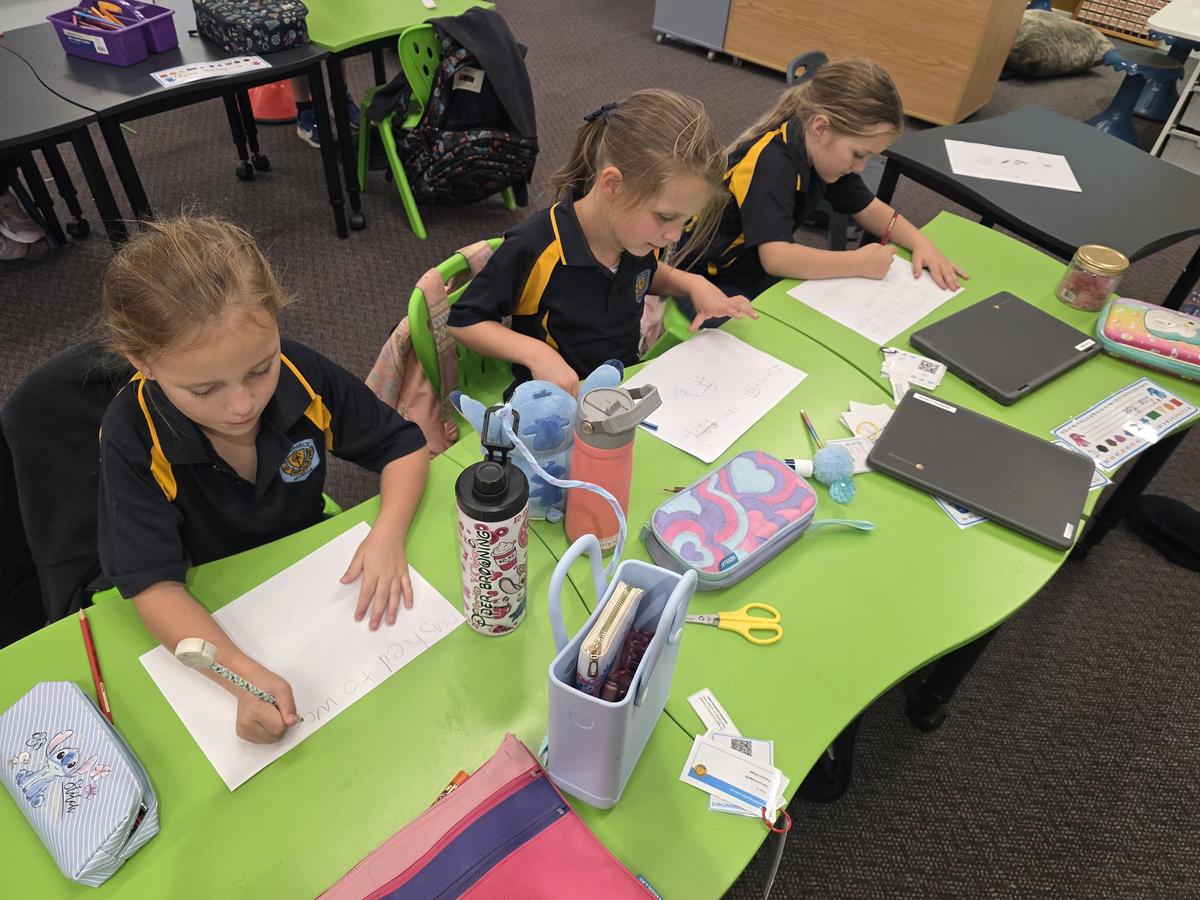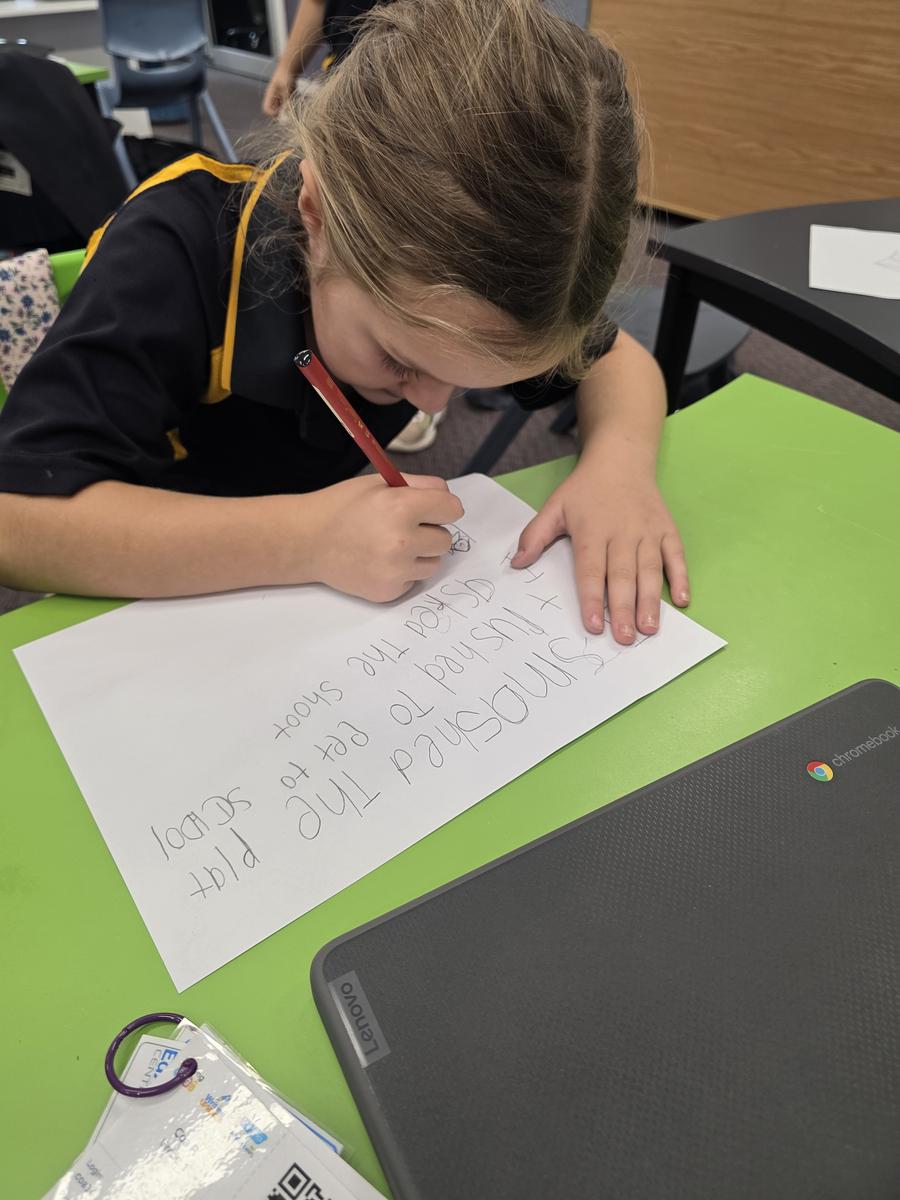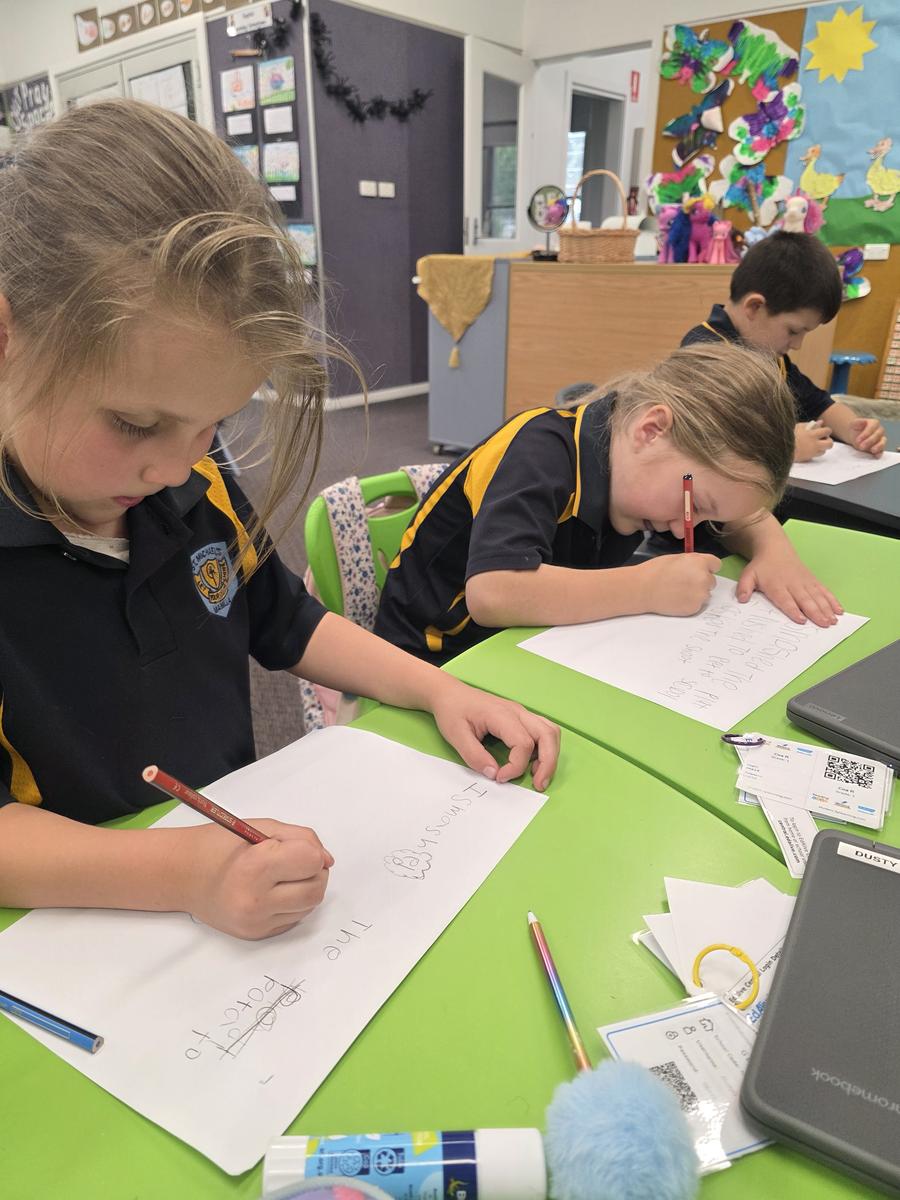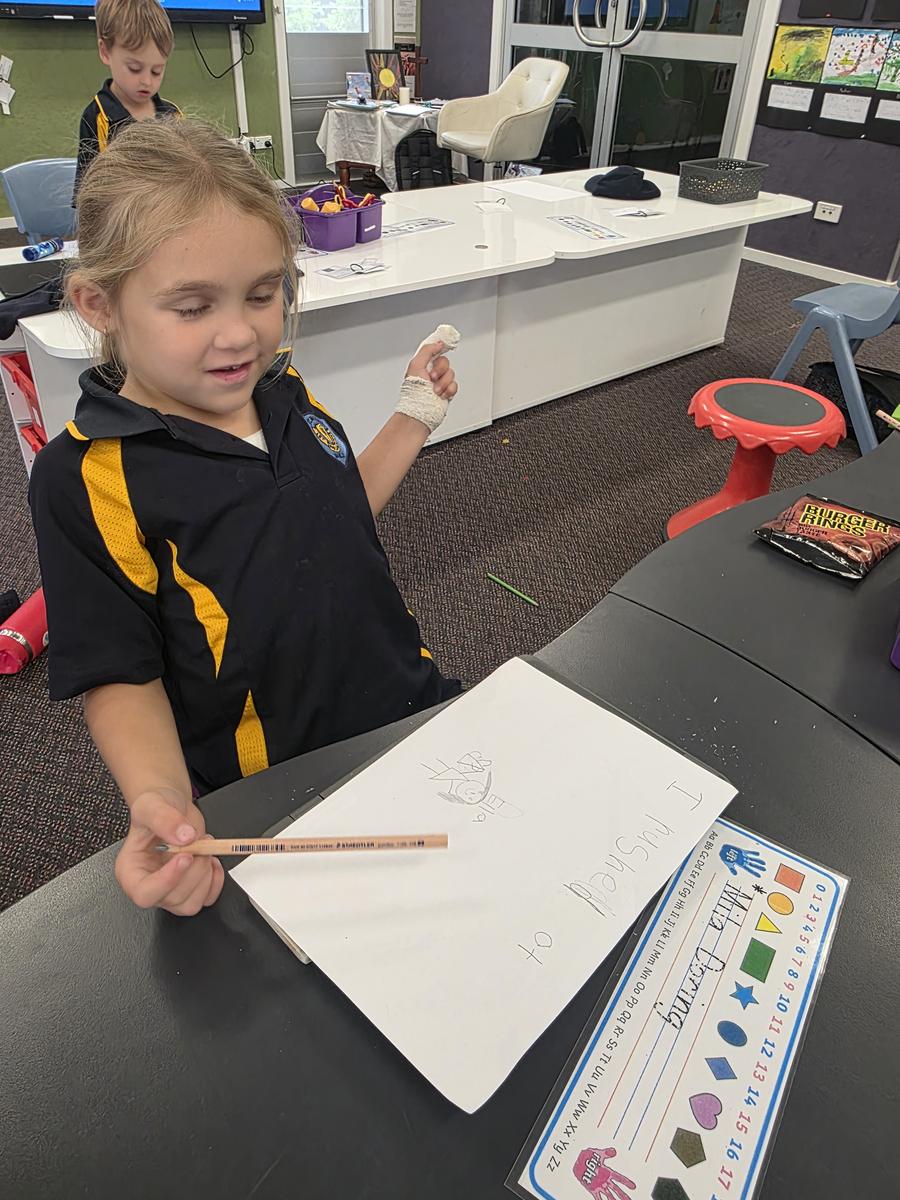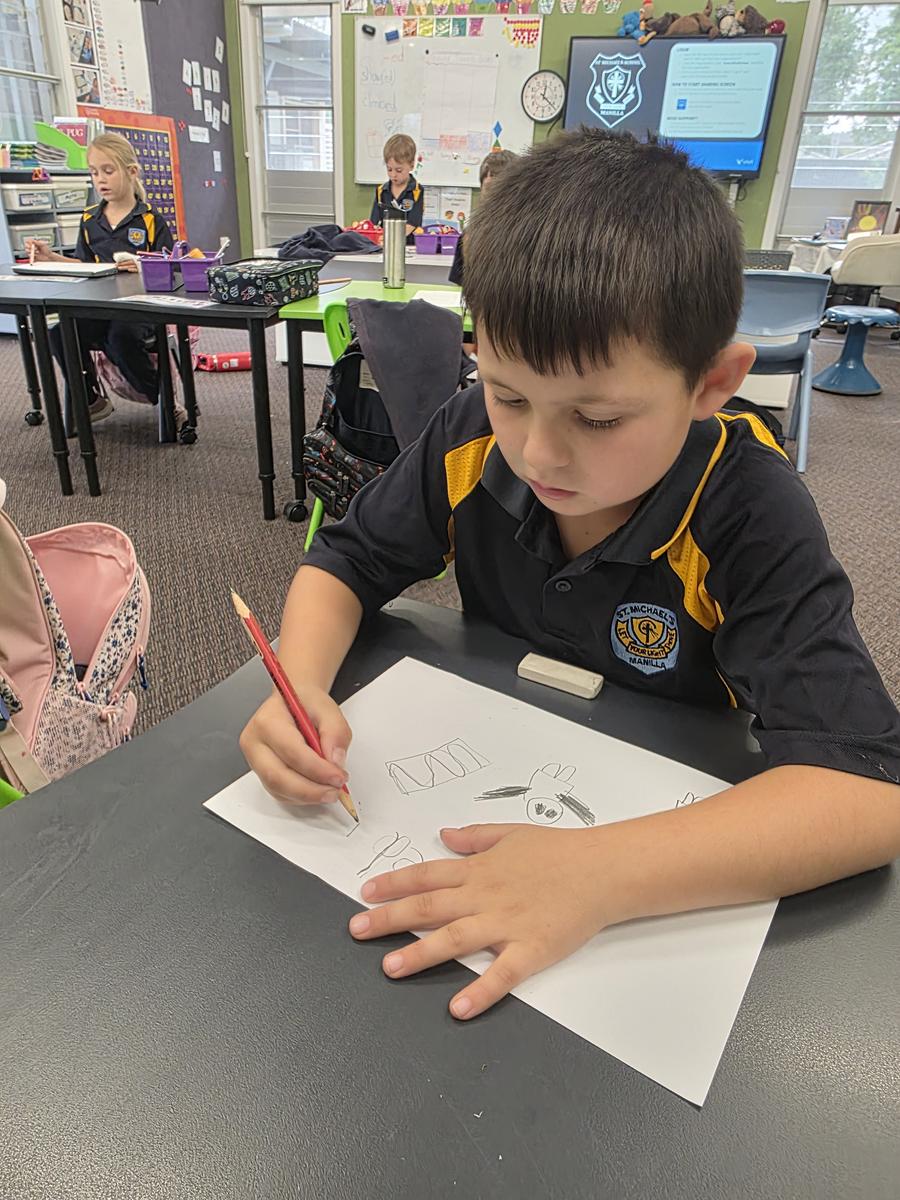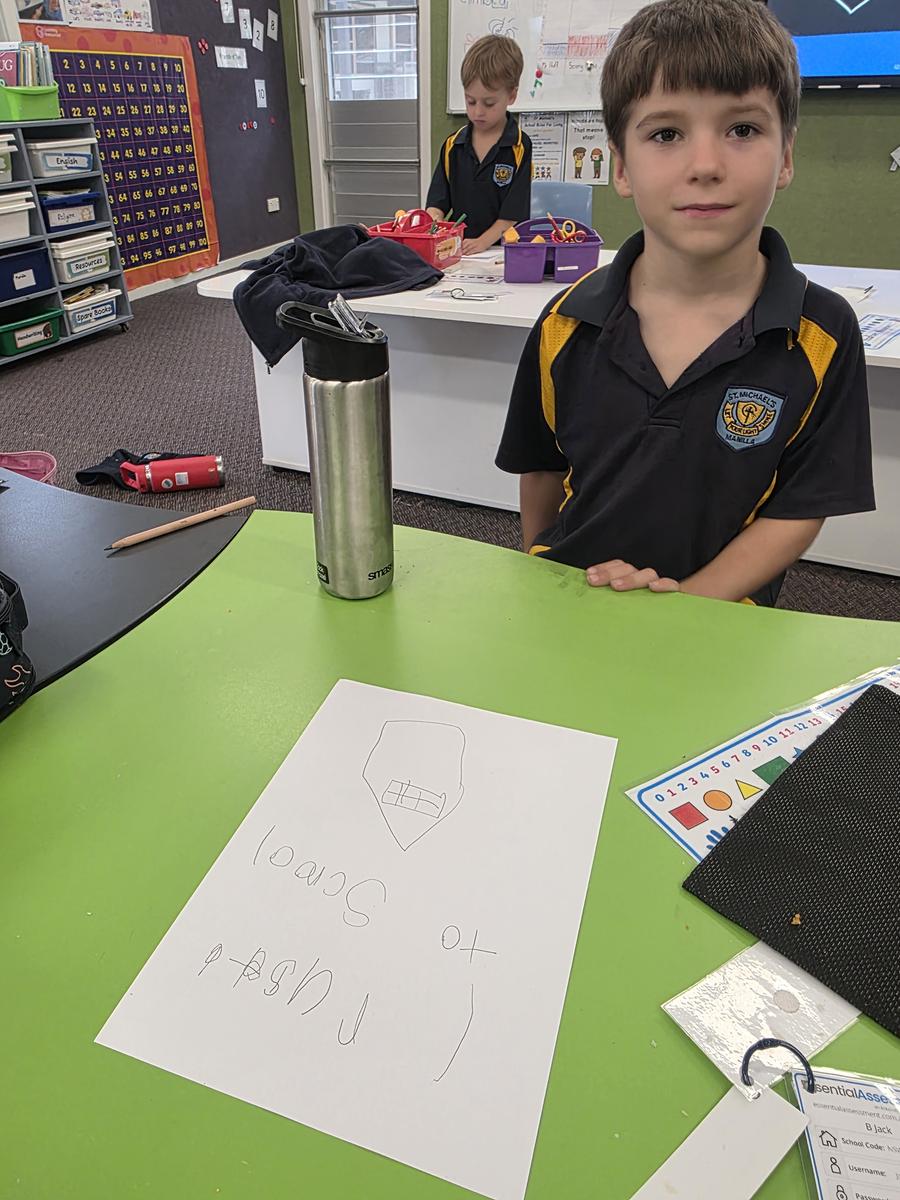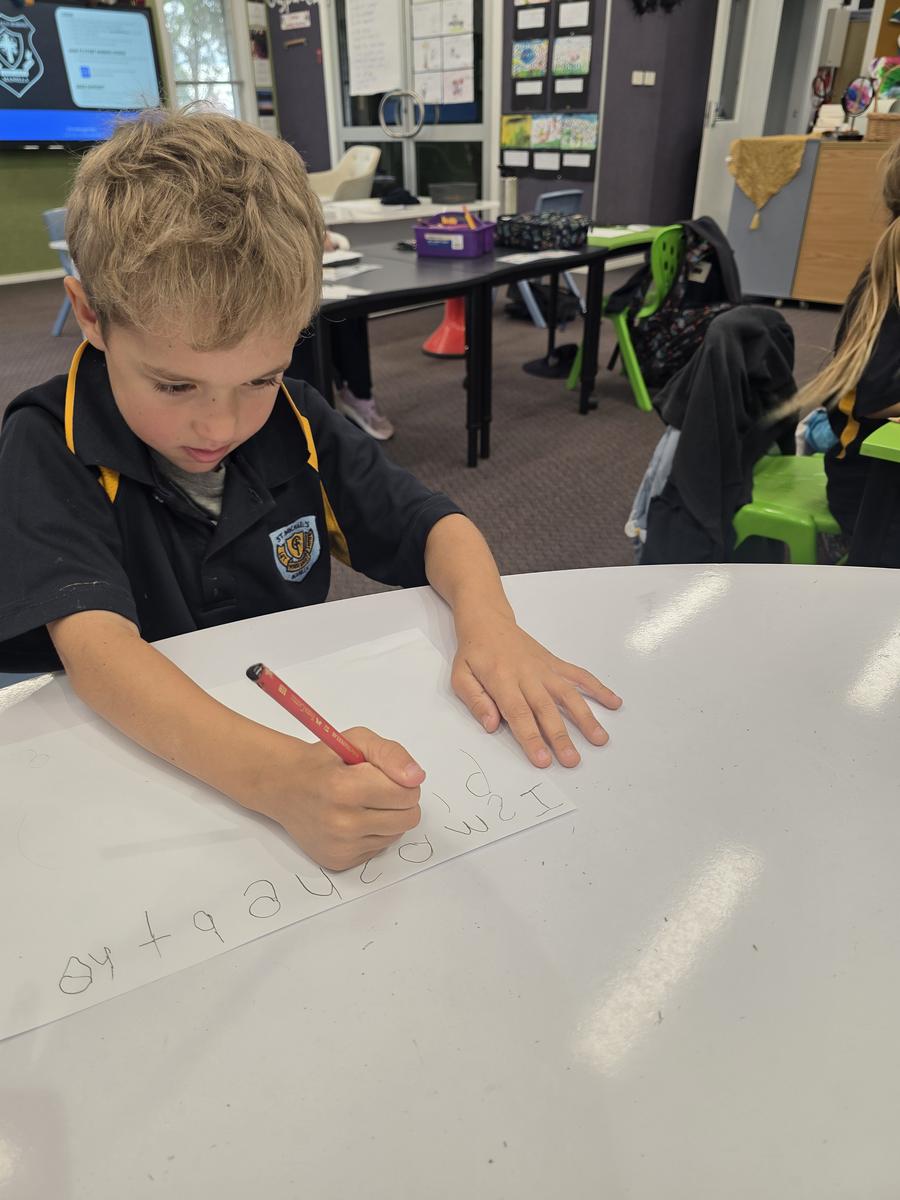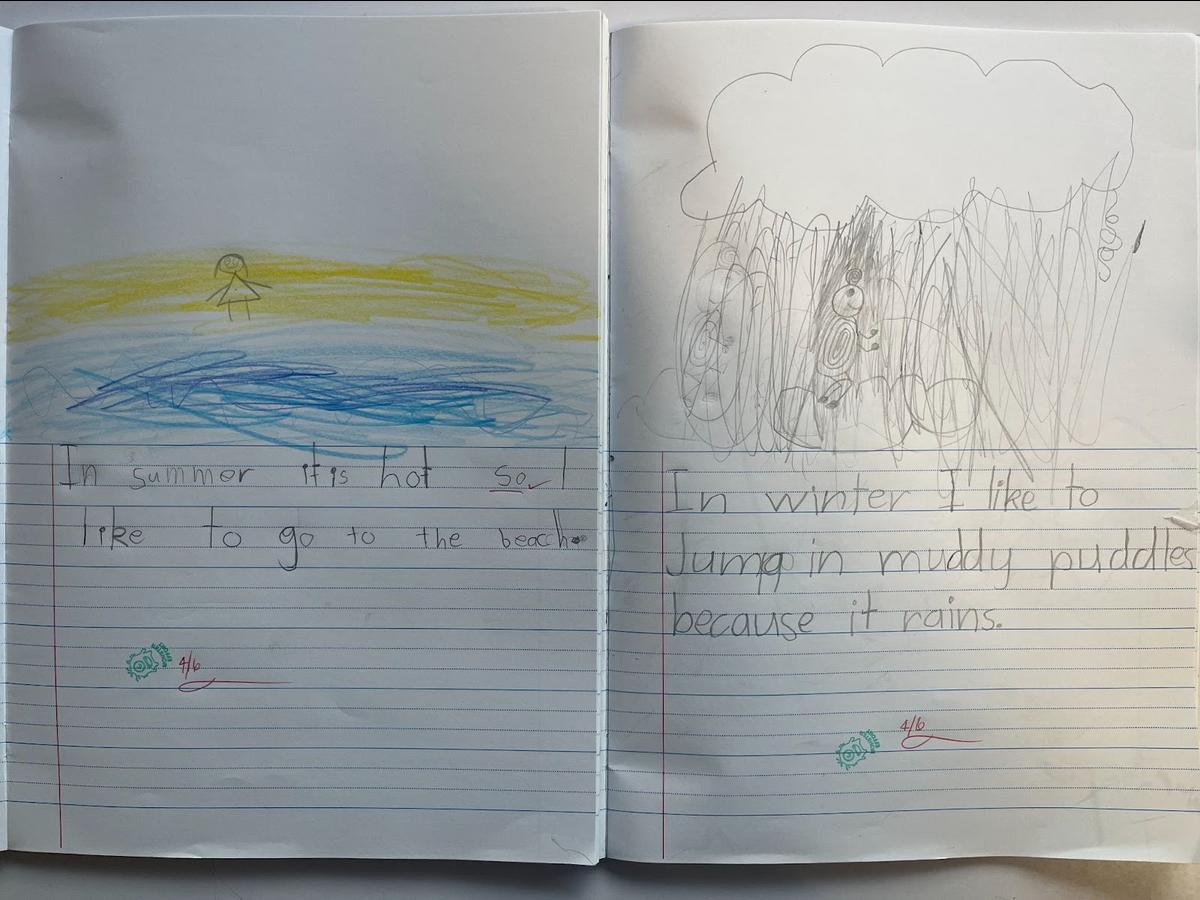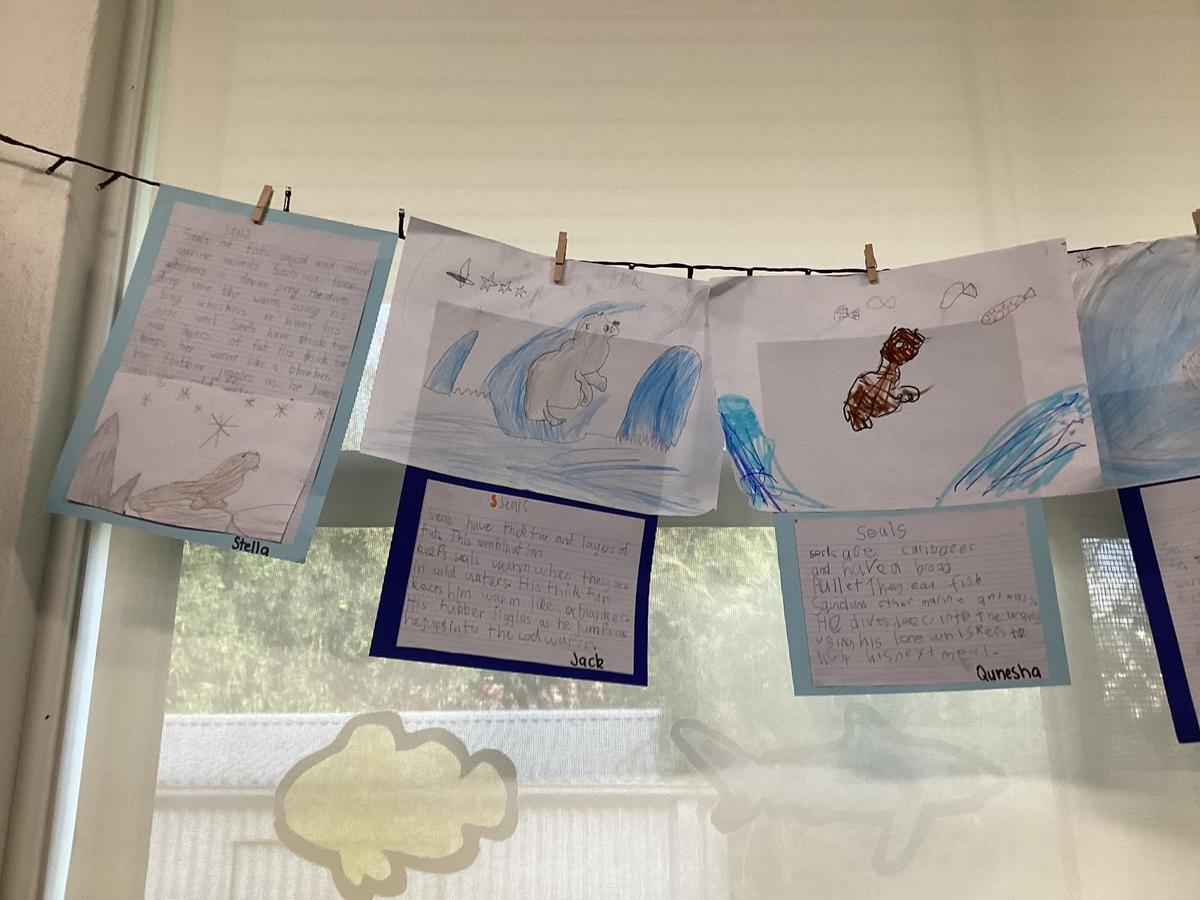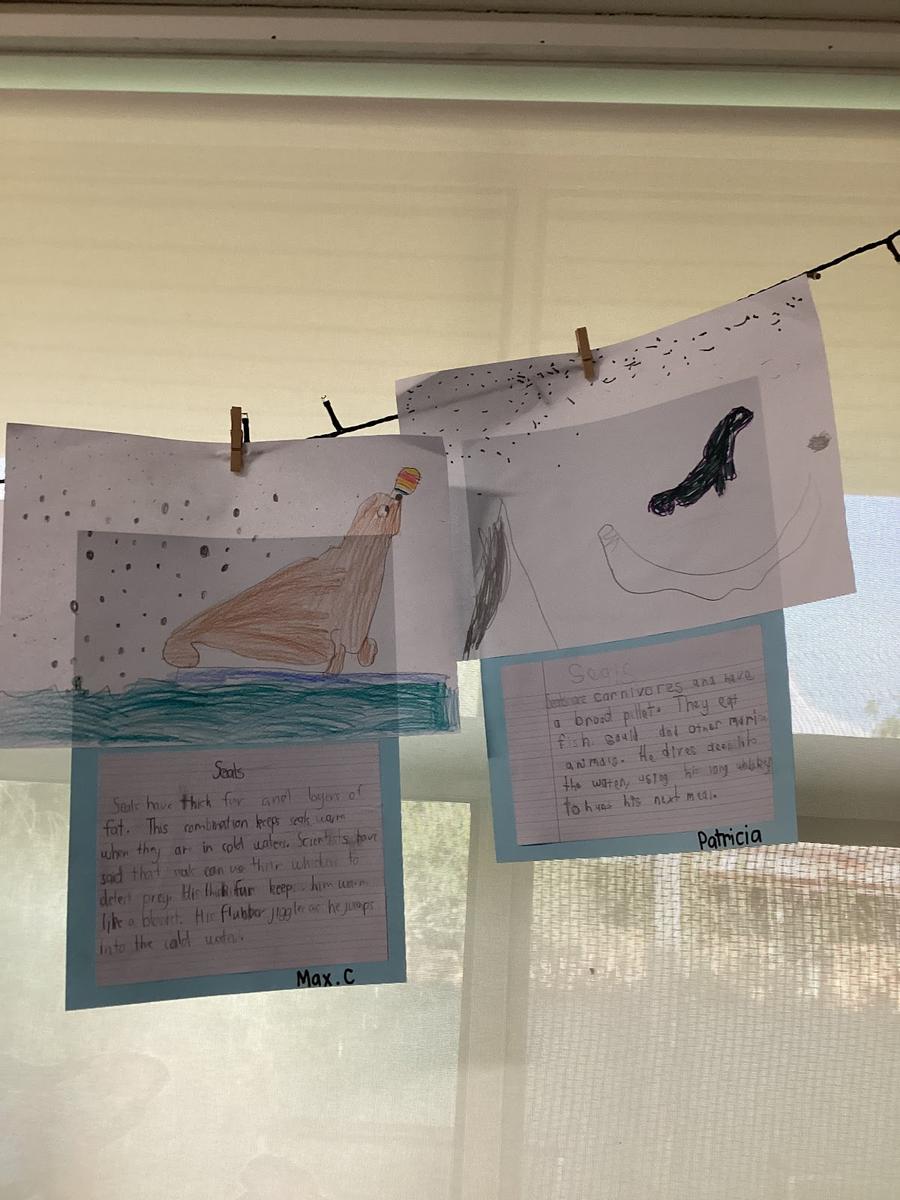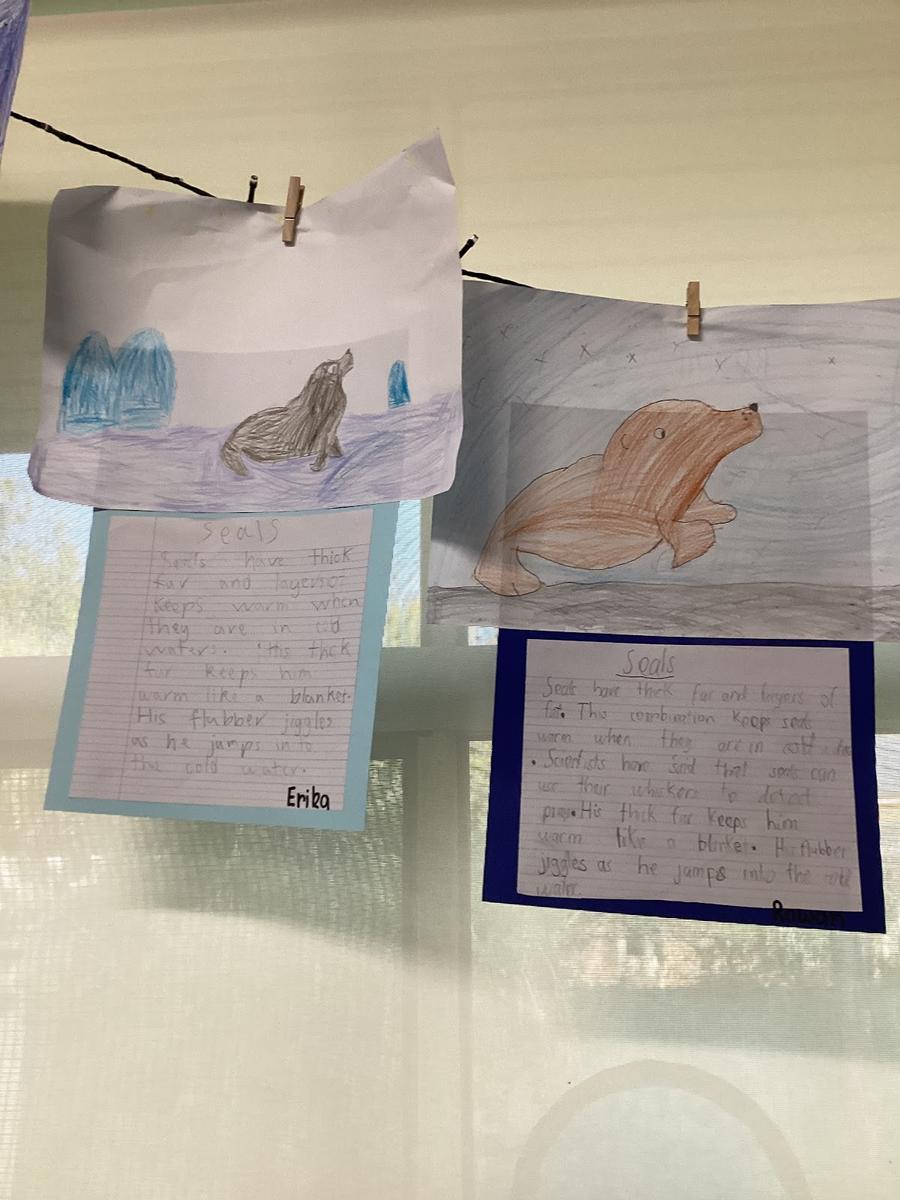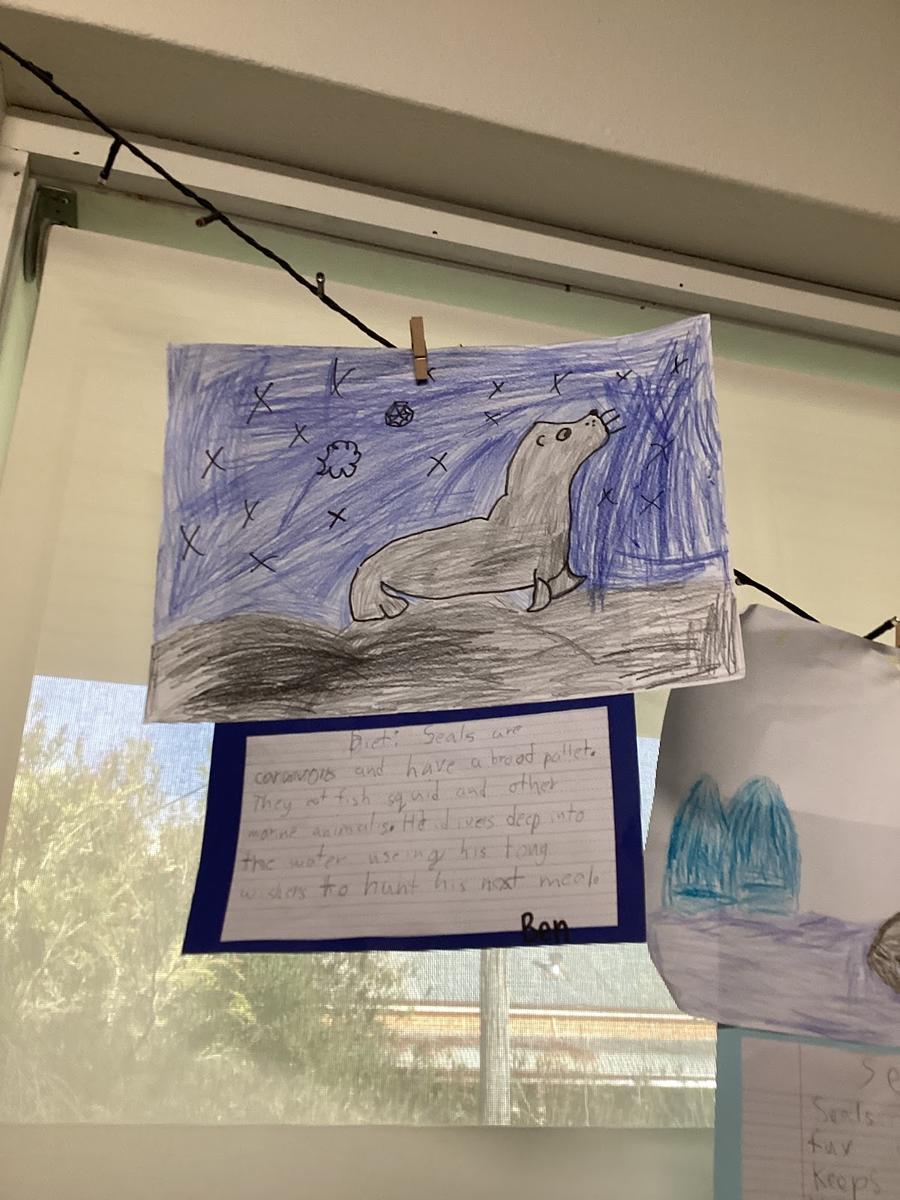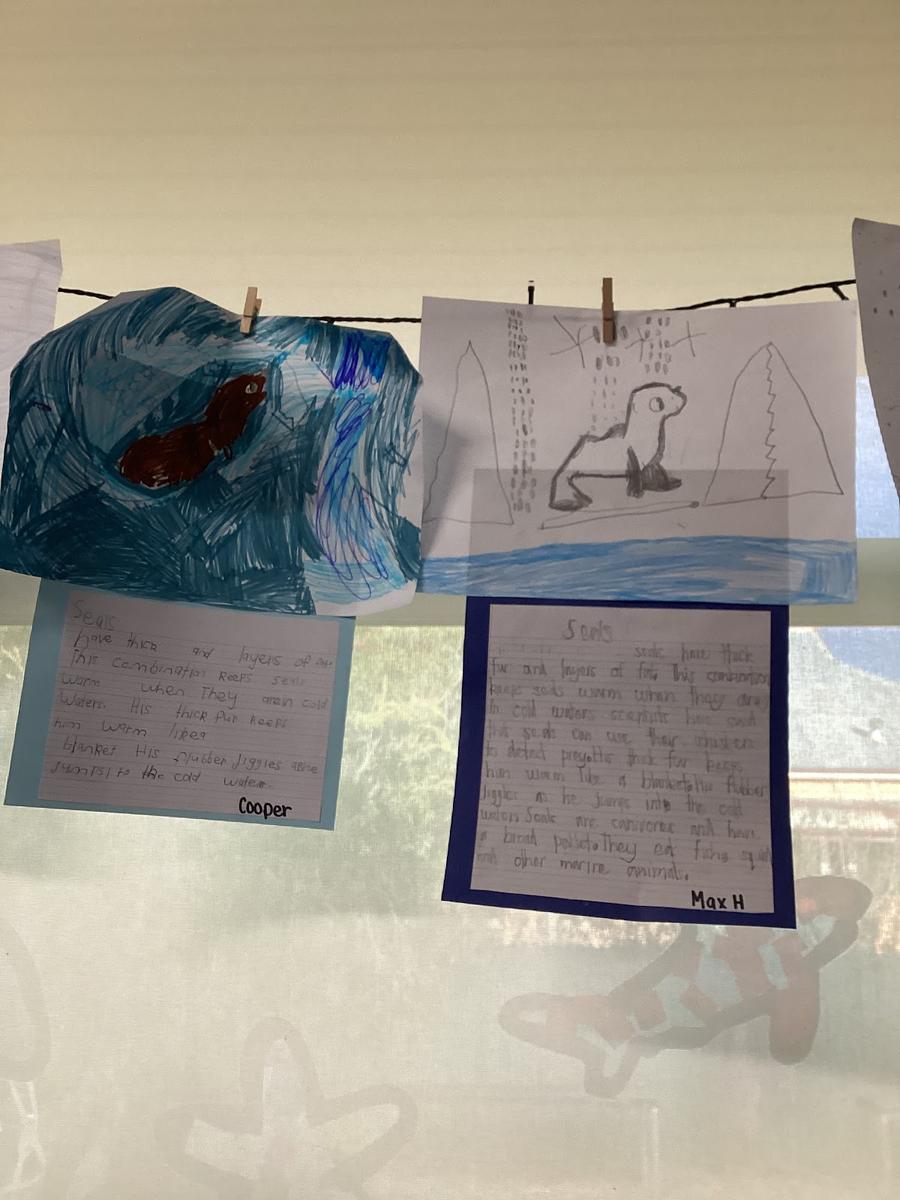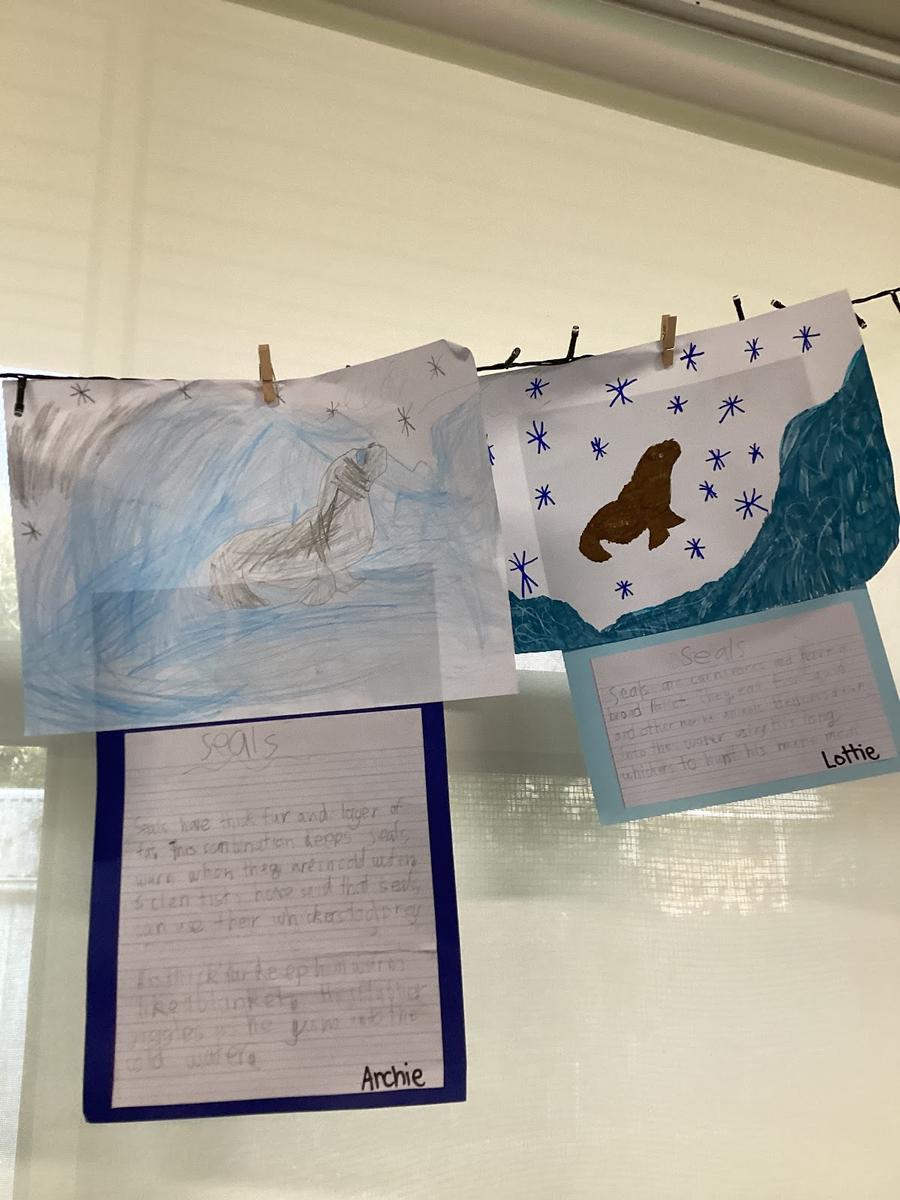Learning News

Week 6 Learning News
Learning News
This fortnight, writing has been a vibrant focus across our school! Many classes have been deeply engaged with non-fiction texts, exploring fascinating topics from the intricate world of ants to the significant historical figures and events surrounding Ned Kelly and Vincent Lingiari. Concurrently, other classes have been immersed in understanding the narrative structure of fables, crafting their own stories with valuable lessons. Our students are truly producing some amazing writing!
Leah Summerell
Leader of Pedagogy / Mathematics Specialist Teacher
K/1
K/1 students are actively engaged in writing activities that enhance their literacy skills and foster creativity. In the classroom, they are exploring various writing prompts, such as describing settings, narrating personal experiences, and crafting simple stories. We are reading a book by Jon Agee, ‘There is a Wall in the Middle of the Book.’ K/1 are busy learning about different narratives and retelling it in their own words. The activities encourage the use of adjectives and basic sentence structures. Additionally, students are practising correct punctuation, capitalisation and spacing between words, which are essential components of early writing development.
Mrs Crafford
K/1 Teacher
Year 1
Our Year 1 authors have been captivated by the delightful book, "A Year on Our Farm"! We've been journeying through the seasons, with each student choosing their favourite to write about. It's been wonderful to see them craft "super sentences," carefully remembering their full stops and capital letters. A key part of our writing process has been rereading our work to ensure it all makes perfect sense. We're incredibly proud of our thoughtful and well-constructed sentences!
Year 1 Teacher
Miss Lyall
Year 2
Year 2 students were exploring hybrid texts in writing. We examined ‘Great White Shark’ by Caire Saxby which told a story of a Great White Shark, as well as providing us with fascinating information. The students then created their own hybrid texts about Seals. We researched and gathered information about Seals and then wrote both informative and storytelling sentences.
Great job Year 2!
Miss Rasche
Year 3
This week, Year 3 started a new writing unit. We have been reading ‘Piano Fingers’ by Caroline Magerl. We have been learning about how authors use imagery and symbols in their writing to enhance the meaning in texts. They have looked at using literary techniques such as metaphors to compare and describe objects. Here are some examples that they came up with:
-”The music sheet was like magic symbols dancing across the page”. -Kash
-”The walls were as dusty brown as an old Harry Potter book”. -Mikayla
-”The rug was as stripy as a zebra laying in the sun”. -Summer.
Well done Year 3!
Mrs Davis
Year 3 Teacher
Year 4
This week, Year 4 students have been delving into history in a truly imaginative way! They've been exploring the story of Ned Kelly, not just as a series of facts, but by stepping into the shoes of those who might have witnessed his actions at the ‘Last Stand of Glenrowan’.
This exercise encouraged the students to consider different perspectives and a deeper understanding of historical events. It also provided a wonderful opportunity to develop their recount/narrative skills and use descriptive language to bring history to life.
Check out some of their writing below!
Miss Martin
Year 4 (Minions) Teacher
The Last Stand- Joe Byrne’s point of view member of the Kelly Gang (By Joe)
Today's the day Ned has told us the plan. It's time to initiate.
We went to round all the town folk up on our chestnut horses.
We captured all of them and we said ‘Get out, otherwise we will shoot you’. Then we put them in the Glenrowan Hotel. Ned provided some music for us while we waited for the magpie legged traps (Police) to arrive.
Suddenly, Dan saw that we were surrounded. He said ‘Boys we are surrounded get your armour on’. I covered for Ned so he could sneak out the back. Bullets roared out of my gun. ‘Oh, no I’m shot!’. The pain is unbelievable.
I really don’t know if it was a good idea to follow Ned and his plan. As I took my last breath I wanted to say sorry to my family for joining the Kelly gang.
The Last Stand- Ned Kelly’s point of view (by Lily)
Today is the day….. I have a plan. We are going to round up all the townspeople into the hotel. The plan is working. All we need now is for the train to arrive…and then it did and there were Traps (police) everywhere. We were ambushed.
I put on my armour. 'Start shooting’ I yell at the rest of the Kelly Gang. I snuck quietly out the back door of the hotel. ‘Ouch’ I have been shot in the legs.
I had a plan…but the plan didn’t work. I needed more time but I didn’t have more time. I have wasted my life (crying noises). I am now seeing my life flashing before my eyes. My life will now be lived in Melbourne in goal.
Stage 3
With the completion of our Genre unit based on the historical event of Vincent Lingiari and the Wave Hill Walk Off, Stage 3 have completed a series of historical information reports on related topics. One interesting activity we undertook was to turn the lyrics to the song “From Little Things, Big Things Grow” by Kev Carmody and Paul Kelly, into an historical information report. We also looked into the 1967 Referendum which helped to empower Aboriginal and Torres Strait Islander people and Gough Whitlam, an important politician of the time.
1967 Referendum
The 1967 Referendum was when everyone in Australia had to vote Yes or No if they were 18 or above on two questions.
Aboriginal people were not counted as humans but as fauna at that time. They were happy after the referendum because they got to be classified as people.
I would vote yes in this referendum because Aboriginals need to be respected IN THEIR OWN COUNTRY!!
By Michael
1967 Referendum
The 1967 Referendum was when everyone over 18 had to vote on a yes or no question. After 10 years of collecting signatures, Indigenous people could finally vote on changing the constitution.
For Aboriginal and Torres Strait Islanders it meant they could vote and were a part of the same laws as everybody else and were counted in the census.
I would have voted yes in this referendum because they were here before us.
By Lillian
1967 Referendum
The 1967 Referendum was a big part of the history of Australia. In this Referendum, people voted for Aboriginal rights and equal access like voting, buying alcohol, better pay and working conditions, but most importantly, for Aboriginals to be recognised as people not flora and fauna.
What it meant for Aboriginals and Torres Strait Islanders was that they weren’t discriminated against by the white people and had rights and abilities that they didn’t have before this referendum.
I would have voted yes in this referendum because it is unfair that people were excluded by the colour of their skin, or the language that they spoke. But this referendum united everyone and put them in the balance with everyone else.
By Jasper
1967 referendum
The 1967 Referendum was when everyone voted on aboriginal rights to change the constitution and to make it so they are seen as humans and that they can be part of the census.
This changed a lot in Australia's history because the aboriginal and non aboriginal people recognised what was happening and how unfair this was that aboriginal people didn't have rights, so they changed the constitution.
This means a lot to the Aboriginal and Torres Strait Islander people because they were finally recognised and got rights.
I would vote yes to them getting rights and being in the census because we are all human and they are our First Nations people.
By Bryce
From Little Things Big Things Grow
Compilation by Stage 3
Originally written by Paul Kelly and Kev Carmody
1.Gather round people I’ll tell you a story
An eight year long story of power and pride’
Bout British Lord Vestey and Vincent Lingiarri
They were opposite men on opposite sides
The story of Vincent Lingiari, the Gurindji people and the beginning of Aboriginal land rights is a significant event in Australian history. Vincent and his people were fighting for equality and rights to their traditional lands in the Northern Territory against the giant and powerful British Vestey Group who leased the land from the government. The struggle went on for eight years.
2.Vestey was fat with money and muscle
Beef was his business, broad was his door
Vincent was lean and spoke very little
He had no bank balance, hard dirt was his floor
The Vestey Group was rich with lots of money and their business was running a cattle station. The group leased land from the Australian government to run a beef business. Vincent Lingiari was lean because he got barely any food and he didn’t speak that much. The Gurindji people also didn’t get paid. The only rations they had were tobacco, salted beef and tea. That was the only food they had because Vesty was fat and greedy; he didn't want to share his money with anyone. Vincent Lingiari was responsible for 80,000 cattle.
From little things big things grow
From little things big things grow
3.Gurindji were working for nothing but rations
Where once they had gathered the wealth of the land
Daily the oppression got tighter and tighter
Gurindji decided they must make a stand
Vincent and the Gurindji people were working for very little money and nothing but rations. They had been working on the land that their people had lived on for hundreds of years. The oppression of their people became worse and the Gurindj people, lead by Vincent Lingiari, decided to make a stand for what was right and just.
4.They picked up their swags and started off walking
At Wattie Creek they sat themselves down
Now it don’t sound like much but it sure got tongues talking
Back at the homestead and then in the town
Vincent Lingiari led the Gurindji people on what is now called ‘The Wave Hill Walk Off’. They got their swags, went on strike and walked to Wattie Creek, where they began their protest.
From little things big things grow
From little things big things grow
5. Vestey man said I’ll double your wages
Seven quid a week you’ll have in your hand
Vincent said uhuh we’re not talking about wages
We’re sitting right here till we get our land
Vestey man roared and Vestey man thundered
You don’t stand the chance of a cinder in snow
Vince said if we fall others are rising
Vesty said they would double the wages, but Vincent Lingari didn't want wages, he wanted land. Vesty did not give in, so the Gurindji people continued to wait while people started to hear about their situation and public support grew.
From little things big things grow
From little things big things grow
6.Then Vincent Lingiarri boarded an aeroplane
Landed in Sydney, big city of lights
And daily he went round softly speaking his story
To all kinds of men from all walks of life
Vincent Lingiari knew his people would need support to be able to continue the fight for equality. So he travelled by aeroplane and visited the major cities such as Sydney & Melbourne, telling everyone of the plight of the Gurindji people in the Northern Territory.
7.And Vincent sat down with big politicians
This affair they told him is a matter of state
Let us sort it out, your people are hungry
Vincent said no thanks, we know how to wait
After gaining public support, in 1967 Vincent Lingiari sent a petition to the Governor-General requesting that 500 square miles be returned to the Gurindji people. Vincent met with the politicians but his request was denied. The government offered to assist his people but Vincent did not give in on his dream to improve the lives of his people and refused.
From little things big things grow
From little things big things grow
8. Then Vincent Lingiarri returned in an aeroplane
Back to his country once more to sit downAnd he told his people let the stars keep on turningWe have friends in the south, in the cities and towns
Vincent Lingiari returned to the Kimberley to be with his people and continue the strike. He told the Gurindji people that they had supporters across the country and they needed to be patient and continue the fight.
9. Eight years went by, eight long years of waiting
Till one day a tall stranger appeared in the land
And he came with lawyers and he came with great ceremony
And through Vincent’s fingers poured a handful of sand
The struggle for equality took eight years but the growing support for the Gurindji people put the government under immense pressure. On the 16th August 1975, Prime Minister Gough Whitlam acknowledged the Gurindji people's right to land and handed over a leasehold title to them at Daguragu.
From little things big things grow
From little things big things grow
10. That was the story of Vincent Lingiarri
But this is the story of something much more
How power and privilege can not move a people
Who know where they stand and stand in the law
This historical event was possible due to the vision and dream of Vincent Lingiari and the support from the Gurindji people as well as people all over Australia.
From little things big things grow
From little things big things grow
From little things big things grow
From little things big things grow
Super writing Stage 3!
Mrs Shepherd
AP/Stage 3 Teacher

